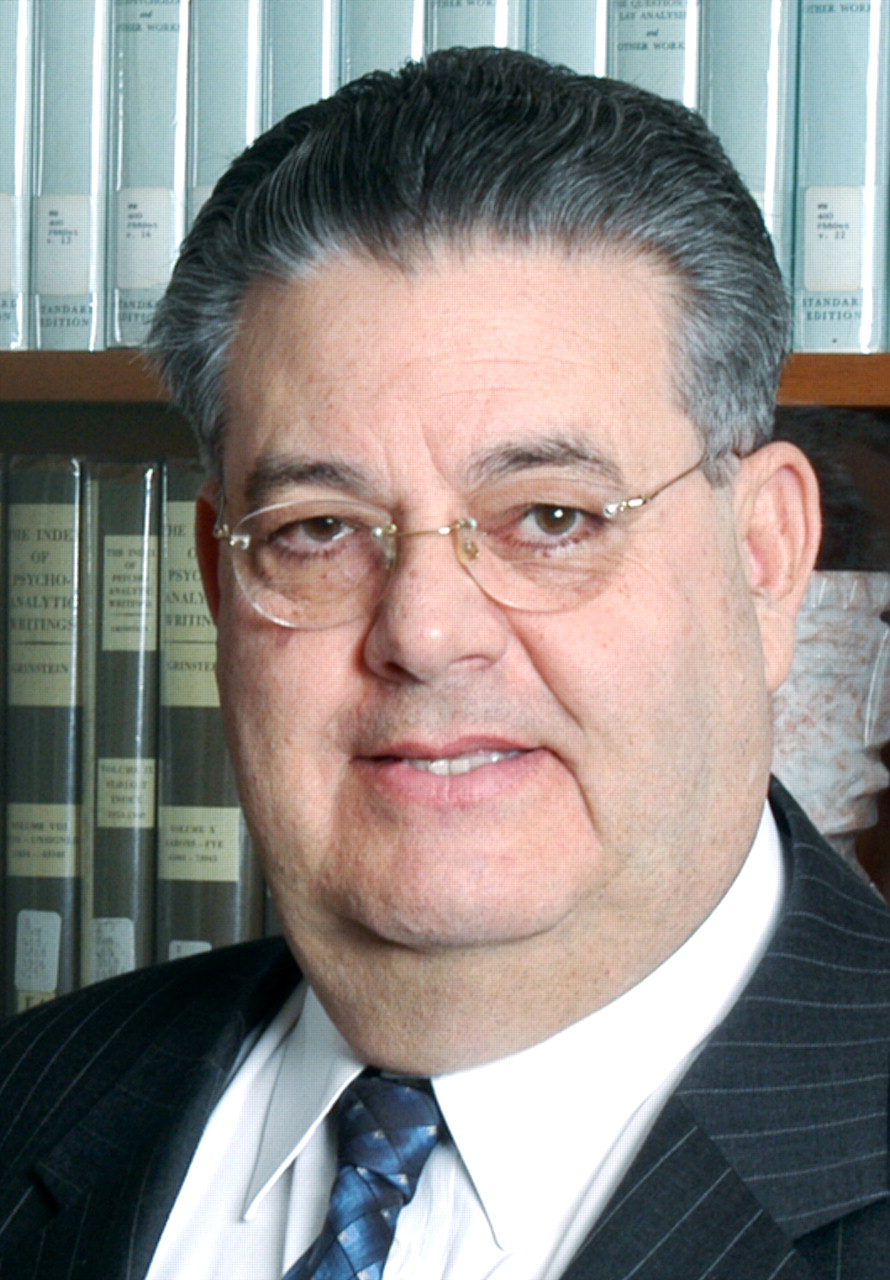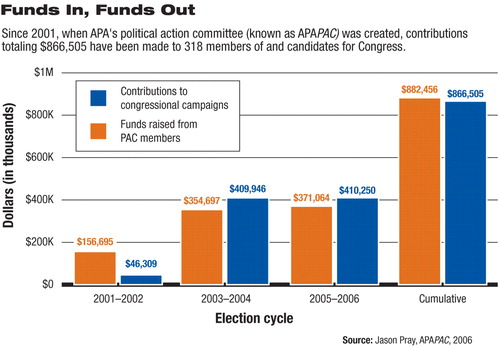PAC Contributions Help APA Ensure Congress Hears Us
As you know, APA has a wide range of advocacy and educational activities and programs, and I would like to focus this column on one of them: APA's political action committee (PAC). Obviously, one of APA's major objectives is not only to continue but also to significantly increase our advocacy activities.

While APA is committing substantial financial support to our district branches and state associations for state-level grass-roots advocacy priorities, our political action committee (designated as APAPAC) is also working at the national level to educate and lobby members of and candidates for Congress on psychiatry's interests. Some members believe that PAC contributions are distasteful, but an effective PAC is a vital part of our coordinated grass-roots and political strategy.
While APAPAC is still in its infancy, it is already a success. Under the dedicated leadership of the PAC Board of Directors, contributions from APA members and staff continue to increase (see chart).
APAPAC works hand in hand with the day-to-day lobbying of our dedicated Department of Government Relations (DGR) staff to advance APA's legislative priorities and to provide greater access to members of Congress than ever before.
These are among the results of the collaborative efforts:

There is much more to accomplish—2006 is a landmark election year with control of Congress up for grabs. We need your support to help APA take full advantage of this opportunity to educate and work with key legislators as they debate these issues:
improving reimbursement of psychiatrists and participating in the pay-for-performance discussion. | |||||
Preventing arbitrary exclusion of the full range of psychotropic medications under Medicare Part D. | |||||
Ending discrimination in insurance plans, including medicare, against people with mental illness. | |||||
Stopping the erosion of medical records privacy. | |||||
Opposing draconian cuts to Medicaid programs. | |||||
Maintaining funding for research and VA health care. | |||||
APAPAC is an absolutely essential part of our advocacy efforts; however, only 6 percent of the APA membership contributes to our PAC. The remaining 94 percent of us need to do our part. Because psychiatry has unique legislative issues, and APAPAC is the only political action committee exclusively dedicated to our medical specialty concerns, it is essential that APA members support it, particularly during this important election.
To obtain more information about APAPACand to contribute, please go to the Members Corner section of APA's Web site at<www.psych.org/members/apapac/index.cfm>. Certain federal contractors may not be eligible to contribute.▪



